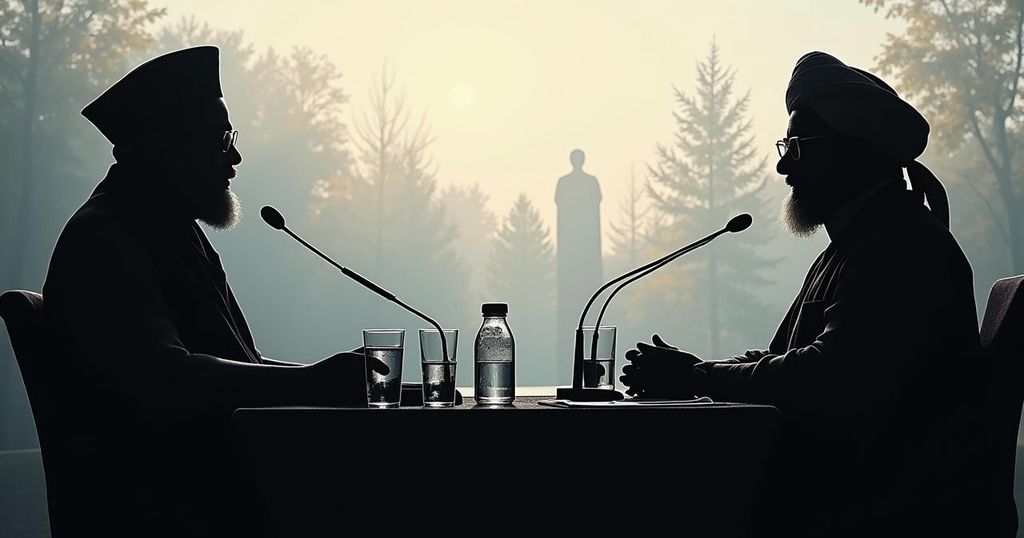In a speech at the UNGA, Pakistan’s Prime Minister Shehbaz Sharif called for India to reverse the abrogation of Article 370 and engage in dialogue regarding Jammu and Kashmir. He also raised concerns about the treatment of Muslims in India amidst claims of rising Islamophobia. India’s External Affairs Minister, S. Jaishankar, is expected to address these allegations subsequently, emphasizing India’s position on the Kashmir issue.
At the United Nations General Assembly (UNGA), Pakistan’s Prime Minister Shehbaz Sharif reiterated his country’s stance on the Kashmir issue, urging India to engage in dialogue for a peaceful resolution. During his speech at the 79th session of the assembly, Sharif suggested that in order to achieve lasting peace, India must reverse the abrogation of Article 370, which granted special status to Jammu and Kashmir prior to its revocation in August 2019. He emphasized that the ongoing oppression in Kashmir fuels resistance inspired by figures like the late Hizbul terrorist Burhan Wani and asserted that the Kashmiri struggle for self-determination mirrors the plight of the Palestinian people. Sharif’s address included allegations regarding the treatment of Muslims in India, describing rising Islamophobia as a concerning trend linked to a supposed Hindu supremacist agenda aimed at oppressing India’s Muslim population. In response, India’s External Affairs Minister S. Jaishankar is scheduled to deliver remarks at the UNGA to counter Pakistan’s claims, emphasizing India’s steadfast position that Jammu and Kashmir is an integral part of the nation. Historically, Pakistan has leveraged international forums to raise the Kashmir issue, yet it has not garnered significant support in this regard.
The Kashmir conflict centers on territorial disputes between India and Pakistan that have historical roots dating back to 1947, when both nations gained independence from British rule. Article 370 of the Indian Constitution conferred special status to Jammu and Kashmir, but its abrogation by the Indian government in 2019 reignited tensions. The region has been a subject of not only military conflict but also humanitarian concerns, particularly regarding the rights of the Kashmiri people. In a broader context, issues of religious identity and the treatment of Muslims in India have also surfaced in international discussions, particularly amidst concerns of rising global Islamophobia.
In summary, Shehbaz Sharif’s address at the UNGA highlighted Pakistan’s ongoing demands regarding Kashmir while drawing attention to perceived injustices faced by Muslims in India. Following these assertions, India plans to respond, reiterating its territorial claims and rejecting Pakistan’s allegations. The situation remains a focal point of international diplomatic discourse, underlining the complex dynamics between the two nations.
Original Source: www.hindustantimes.com







